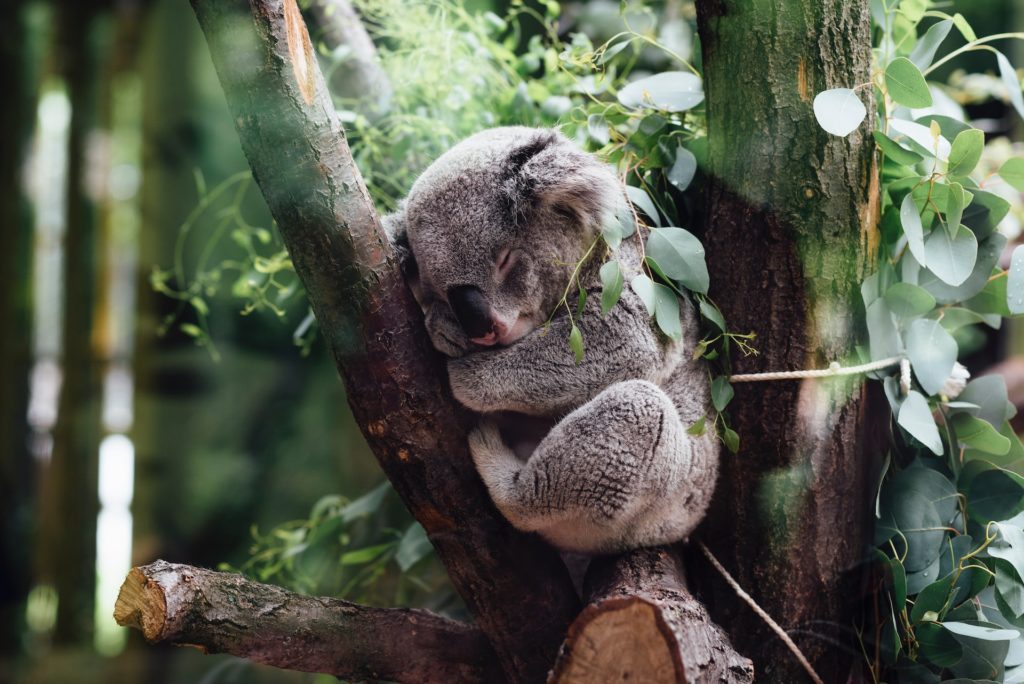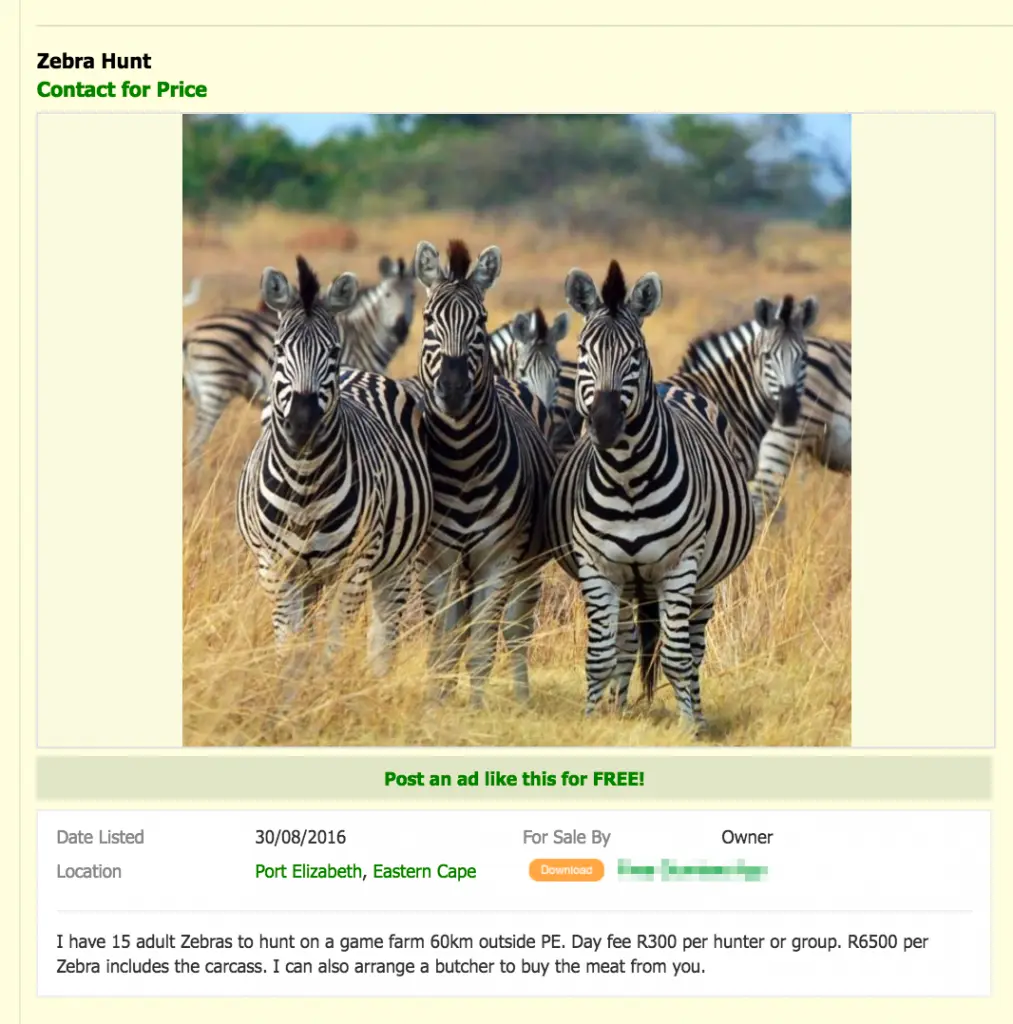Contents
Do you have ads for Australian teddy bears and striped sheets on your site? In that case, you may be involved in the black market trade of endangered species, as the AIM Group and Times of India reported earlier.
The US Senate passed the END Wildlife Trafficking Act, which raises wildlife trafficking to a serious crime. Now, authorities worldwide are stepping up their control of online marketplaces. Perhaps it’s time for you to take a stand and decide whether you can afford to risk legal charges and the PR backlash due to your involvement in the trade with wildlife and endangered species.

What is an endangered species?
CITES* is an international agreement between governments to ensure that illegal international trade doesn’t threaten the survival of wild animals and plants. 183 nations are members, meaning any species named on the list is prohibited between the countries. The convention doesn’t automatically replace national laws, but many countries use the framework to adopt domestic legislation.
*CITES is short for “The Convention on International Trade in Endangered Species of Wild Fauna and Flora,” also known as “the Washington Convention.”
What is for sale on marketplaces?
Quite a lot when you take a closer look, but it isn’t always easy to catch. Indian Times reports that living Koalas have been sold under the code “Australian Teddybears” and Tiger skin as “striped sheet.”
IFAW (The International Fund for Animal Welfare) found 33,006 endangered wildlife and wildlife parts and products in 9,482 ads on buy and sell sites worldwide between 2004 and 2014.
Here are just some examples of ads we regularly come across:
Ivory
It is a classic and one of the most commonly occurring illegal trades on classified sites. Everything from jewelry to knickknacks and furniture made of ivory is on sale, sometimes under code names. Some countries allow the sale of “old” ivory, but the rules are complex, and it’s difficult to guarantee the origin, so you take a high risk if you choose to get involved.

Bush meat
Game meat from wild animals is hunted, slaughtered, and consumed by humans. From the beginning, it was mainly associated with apes and monkeys but nowadays includes:
- Hippopotami
- Water buffalo
- Elephants
- Giraffes
- Zebra
- Wild hoofstock
- Caracals
- Jackals
- Reptiles
- Birds
- Rodents
Besides the meat often includes endangered species, it can also harbor infectious agents causing human disease.
Rhino horns
There is a strong belief in many parts of Asia that rhino horn is a cancer medicine and a horn can sell for as much as USD$30,000. Commercial trade of rhino horn is regulated by CITES, which only allows for trophy-hunted and stuffed rhinos from a small number of African countries, and secondary horn sales are illegal.
However, to get around these regulations, smugglers have been caught paying Thai and Vietnamese residents to pose as trophy hunters, bringing them to a South African private hunting reserve where they then pretend or attempt to shoot rhinos and have had a trained professional hunter on standby to kill the game on their behalf.
Trophy Hunts
Remember Cecil The Lion, who an American dentist shot in Zimbabwe? That’s just one example headline of PR scandals connected with trophy hunts. There are plenty of listings for various types of hunts on classified sites, and even though they’re not always illegal, you have to take a stand and decide whether this is something you want on your site.
“The big 5”
- Buffalo
- Leopard
- Lion
- Elephant
- White Rhino
These are perhaps the most sought-after targets and big business, but so are Polar Bears, Crocodile, and Baboon.
Canned hunting or shooting preserves
Commonly referred to as “shopping and shooting,” “put and take,” or “captive hunting,” animals are kept in an enclosure too small to allow any chance to escape, and they are often drugged or human-habituated, making them an easy target. This type of hunting has been called unethical, even by some hunting organizations, and the risk of disease transmission due to the high population density is high.

Pet reptiles, turtles, and exotic birds
Turtles and tortoises are the most commonly occurring reptiles, and parrots are the most prevalent for birds. But you can also choose from snakes, lizards, crocodiles, and hummingbirds for sale if you’re looking for an illegal pet.
Big cats
Live cats, cubs, and products made from tigers, leopards, ocelots, and lynxes are on sale. Traditional Chinese medicine is on the rise. That creates an increased demand for tiger parts in countries like Japan, South Korea, the US, and the UK. Claws, teeth, tail, whiskers, brain, and even penis are among the sought-after parts used for anything from epilepsy treatment to love potions.
How content moderation can help
Even though trade with all endangered species is not strictly illegal in every corner of the world, we strongly recommend that you keep a rather strict policy. There are many gray zones, and you shouldn’t ignore the risk of bad PR when the media decides to investigate the topic. The articles we previously referred to point to significant sites, forcing them to take action. It would have been easy to avoid the bad publicity if they had had processes in place earlier.
Automate
If you use automation, you should set up filters to recognize keywords that may refer to endangered species. Exactly how stringent you want to be is a discussion about accuracy vs. efficiency.
If your tool allows, you can create rules that prevent, e.g., “toy tigers” from being rejected. But if the quality is a priority, all your tigers should be sent to a manual check since scammers often use keywords (as mentioned earlier in this article). Don’t forget to keep your filters updated when new species are added, and scammers find new ways.
Besedo’s customers can use the readymade “endangered species” – a free list with the tool.
Investigate
Anything suspicious should be cross-checked against the CITES database. If you suspect the product contains anything from the list, don’t allow it.
Build trust by taking a stance
Only the fittest will survive in today’s digital jungle, and building trust and relationships with picky consumers is crucial to staying competitive. Is your site providing an ethical and safe shopping environment where users can rely on finding good, legal products?
Ensure you stay on top of the food chain by keeping your marketplace out of the endangered species trade, or your brand might face extinction.
Related articles
See allSee all articlesThis is Besedo
Global, full-service leader in content moderation
We provide automated and manual moderation for online marketplaces, online dating, sharing economy, gaming, communities and social media.





